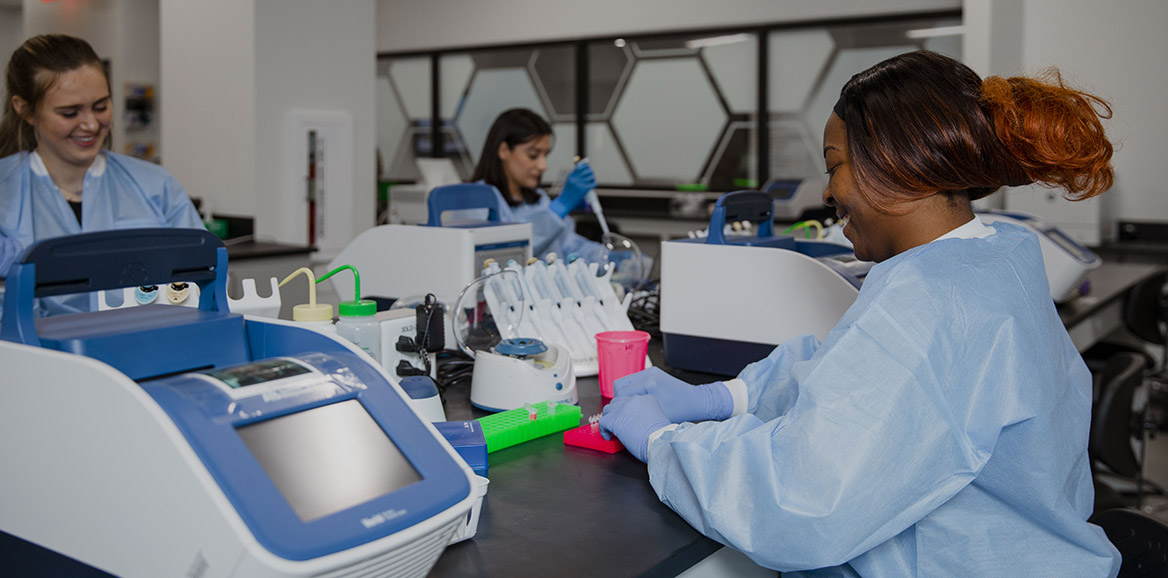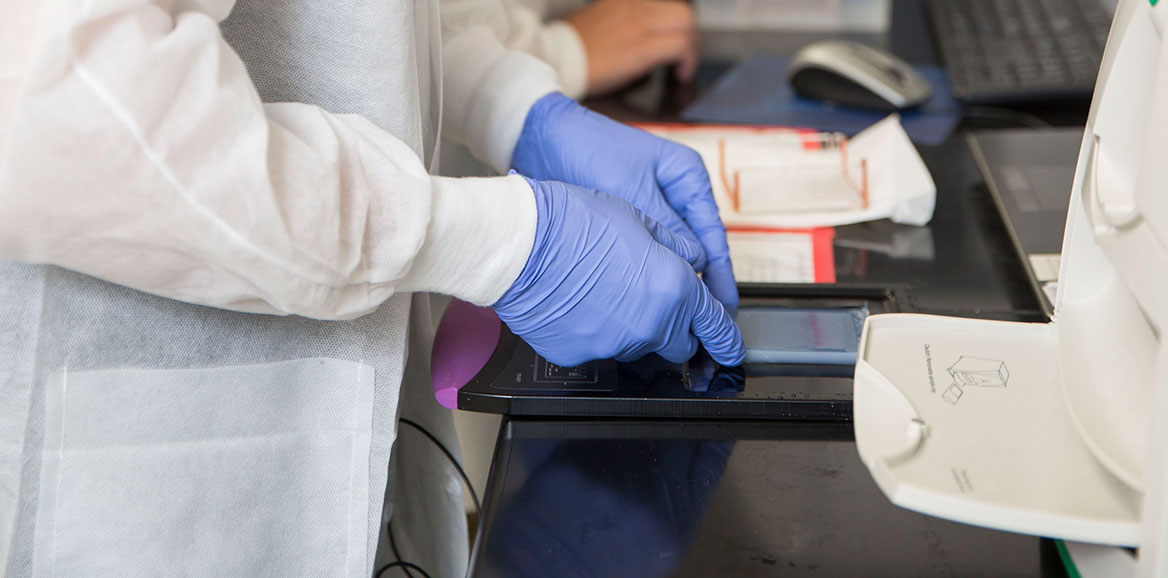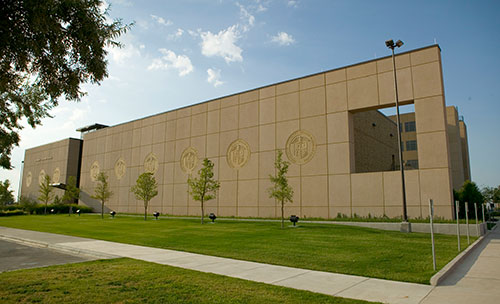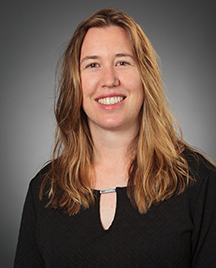Master of Science in Molecular Pathology

What is Molecular Pathology?
Molecular pathology, also known as molecular diagnostics, takes a molecular and genetic approach to the study and diagnosis of inherited disease, cancer, and infectious diseases. This type of laboratory science and testing stands at the frontlines of advanced patient care. As technologies continue to evolve and new scientific discoveries are made, molecular pathology is playing a key role in the evolution of patient health care.
About the Master of Science in Molecular Pathology
The Master of Science in Molecular Pathology is a one-year, on-campus degree program where you will learn how to perform clinical genetic analysis of human DNA and develop a strong clinical background in our state-of-the-art laboratory facilities. The 12-month sequential program begins in the summer and includes 39 credit hours of classroom, laboratory, and research experience and three credit hours of clinical experience. The clinical component is structured to provide you with skills and practice in diagnostic techniques, quality assurance, and interpreting and reporting patient results.
OCT. 1![]()
Application open
MAR. 1![]()
Application deadline
SUMMER![]()
Program Start Term
Molecular Diagnostics in a State-of-the-Art Facility
In our state-of-the-art training lab facility, you will develop your skills using some of the most complex gene-testing instruments available. The laboratory space is divided into a preanalytical room (for DNA and RNA isolation) and a post-analytical room (for PCR, DNA sequencing and viral assays). The techniques you will learn are the same as those used by forensic labs and in research and industry facilities. They include:
- DNA and RNA isolation.
- PCR (Polymerase chain reaction).
- Real-Time PCR.
- Sequencing.
- RFLP (Restriction fragment length polymorphism).
- Electrophoresis.
- Next-generation sequencing.
- Pyrosequencing.
The Master of Science in Molecular Pathology program at TTUHSC is accredited by the National Accrediting Agency for Clinical Laboratory Sciences (NAACLS)
NAACLS
5600 N. River Road, Suite 720
Rosemont, IL 60018
Phone: 733-714-8880
Fax: 733-714-8886
My professors truly took the time to ensure the content matched the certification
exams and made sure to teach in a manner that was understandable to students. All
of my professors never hesitate to answer any questions asked or respond to any email.
Thanks to the resources the program offers, I’ve learned there’s nothing I can’t do
as long as I try to the best of my ability.
BreeAnna Musgrove
Molecular Pathology
Molecular Diagnostics Certification
As a graduate of the program, you will be eligible to sit for the American Society for Clinical Pathology (ASCP) national certification exam in Molecular Biology, resulting in the Technologist in Molecular Biology, MB(ASCP) certification.
Outcomes (2023-2025):
| Program Year | Graduation Rate (%) | Certification Pass Rate (%) | Employment Rate (%) |
|---|---|---|---|
| 2022 - 2023 | 100 | 100 | 100 |
| 2023 - 2024 | 100 | 95 | 93 |
| 2024 - 2025 | 100 | 100 | 96 |

Careers in Molecular Pathology
As a diagnostic molecular scientist, you will provide a critical service in the molecular diagnostic testing of acquired, inherited and infectious diseases. Your work will enhance the value of clinical laboratory services by providing advanced techniques and applying genetic information to the testing of patient specimens. With the continuing revolution in our understanding of human genomics that is driving new approaches to the therapy and diagnosis of disease, molecular pathology professionals will continue to be presented with dynamic new challenges, including unique kinds of testing, ethical issues, and advanced molecular techniques.
There is a shortage of qualified professionals available to work in this field and employment opportunities can be found in a variety of settings, including:
- Hospital molecular diagnostics laboratories.
- Reference laboratories.
- Biotechnology laboratories and sales.
- Research and development laboratories.
- Forensic laboratories.
- Public health departments.
- Crop science laboratories.
In addition to careers related to human genetic testing, molecular diagnostics specialists are also employed in the fields of animal science and agriculture.
- With an increase in the aging population, and as diagnostic techniques such as prenatal testing for genetic conditions continue to become commonplace, The Bureau of Labor Statistics (BLS) Occupational Outlook Handbook projects that jobs for medical laboratory scientists will increase by 12% to 14% through 2026, faster than average for all professions.
- The BLS projects that job prospects will be best for professionals who complete an accredited education program and earn professional certification.
- For more information about a career as a medical laboratory scientist visit the ASCP website.
The Molecular Pathology Curriculum
The Master of Science in Molecular Pathology curriculum prepares you to enter the field of clinical molecular diagnostics with a background and practice in molecular science, testing techniques, research, and laboratory management.
Lectures, laboratory experience, and clinical education combine to develop your professional job-ready skills. The curriculum consists of 42 semester equivalent hours of academic education. Classes include:
- Molecular Biology of the Cell
- Research Design and Statistical Analysis
- Applied Molecular Techniques
- Human Molecular Genetics
- Management of the Molecular Laboratory
Successful completion of the program culminates in the Master of Science in Molecular Pathology degree.
Explore our curriculum and learn about laboratory requirements.


